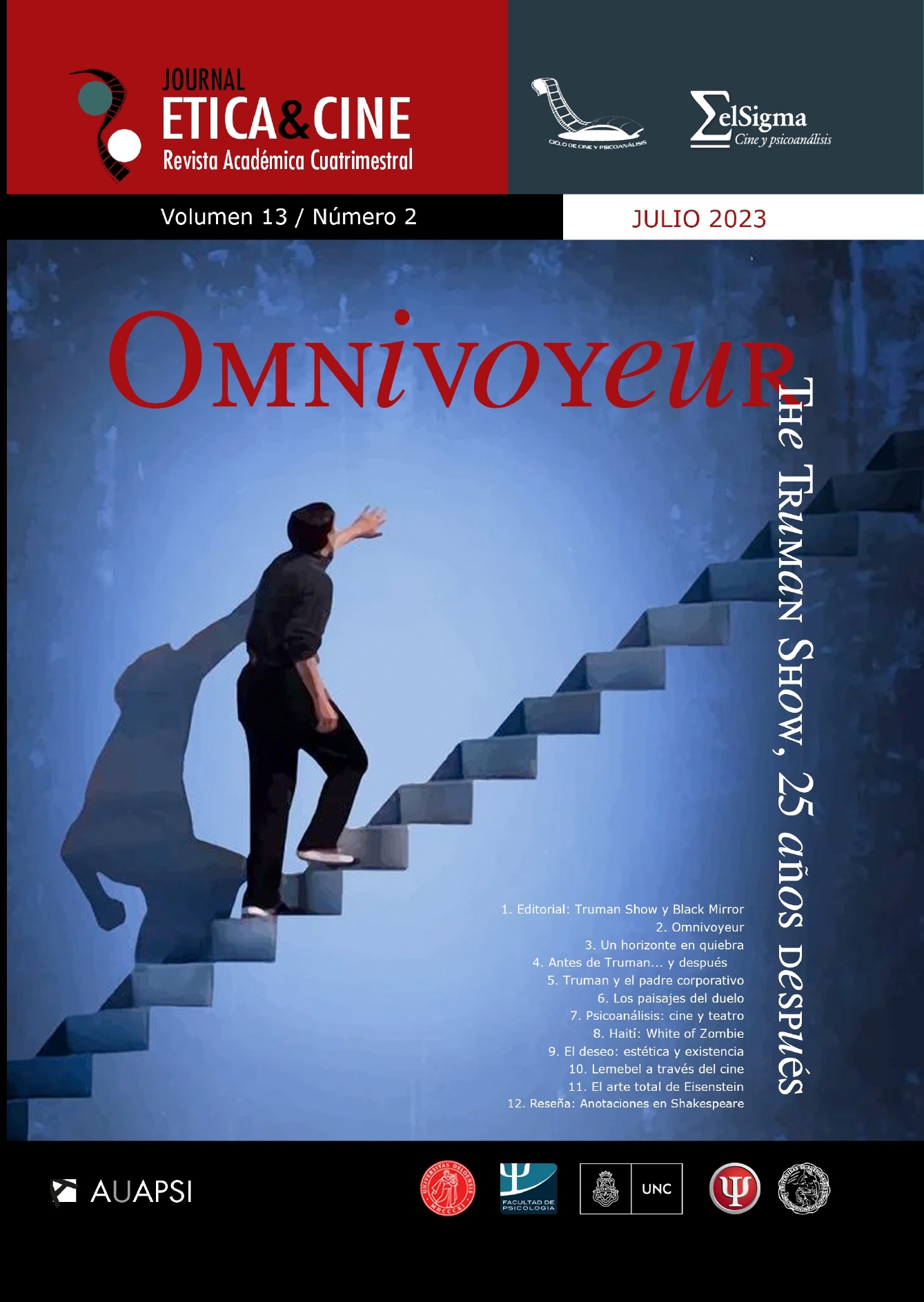Omnivoyeur. Commentary on The Truman Show, by Peter Weir
DOI:
https://doi.org/10.31056/2250.5415.v13.n2.41962Keywords:
Gaze, Voyeurism, Reality show, DesireAbstract
Lacan proposes that from our beginning we are objects offered to the gaze of the others, and that does not require to imagine an absolute Other that looks at us. Because if it does so, then the gaze of an Omnivoyeur shows up, creating to the subject the illusion of being only what is seen. Lacan says that the subject of desire is not entirely trapped in this imaginary catch, as long as he is able to separate the function of the screen and play with it. Peter Weir´s film The Truman Show is, in that sense, an epic of the desire, as it tells the story of a character subjected to the gaze of millions of spectators of a reality show, and how he can get out of that confinement.
Downloads
References
Baudrillard, J. (1993). La transparencia del mal. Anagrama.
Foucault, M. (1983). La verdad y las formas jurídicas. Gedisa.
Freud, S. (1895). Proyecto de una psicología para neurólogos. Amorrortu.
Jinkis, J. (1985). Eutükhía. En Conjetural 6. Sitio.
Lacan, J. (1964). El seminario 11: Los cuatro conceptos fundamentales del psicoanálisis. Paidós.
Miller, J.A. (1986). La máquina panóptica de Jeremy Bentham. En Matemas I. Manantial.
Downloads
Published
How to Cite
Issue
Section
License
Copyright (c) 2023 Ética y Cine Journal

This work is licensed under a Creative Commons Attribution-ShareAlike 4.0 International License.
Los autores que publiquen en Ética y Cine Journal aceptan las siguientes condiciones:
Los autores/as conservan los derechos de autor © y permiten la publicación a Ética y Cine Journal, bajo licencia CC BY-SA / Reconocimiento - Reconocimiento-CompartirIgual 4.0 Internacional. La adopción de esta licencia permite copiar, redistribuir, comunicar públicamente la obra, reconociendo los créditos de la misma, y construir sobre el material publicado, debiendo otorgar el crédito apropiado a través de un enlace a la licencia e indicando si se realizaron cambios.

Este obra está bajo una licencia de Creative Commons Reconocimiento-CompartirIgual 4.0 Internacional.




